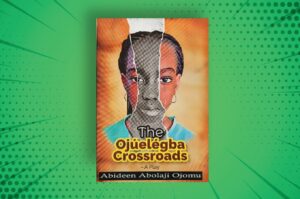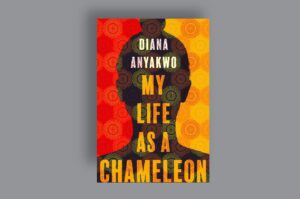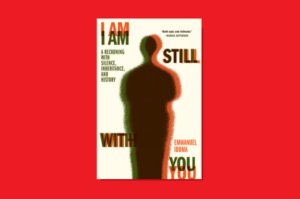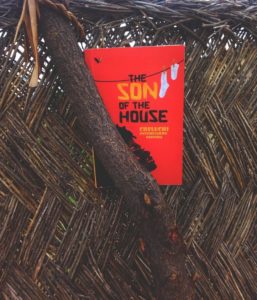
‘The country is a stone,’ he says. ‘It never feels anything.’ – Oguike in “Breaking News”
After a two-year delay, in between extensive social media conversations, and even an interview with Nnamdi Oguike, I finally received a copy of his book. I set aside every other book on my list and focused on this one. It had been two years since publication, and a lot of African creative literature had come out since then. I was late, but then I believe this allowed me to read the work with a different eye. At the end of my reading, I knew I had read one of the best books after Gabriel Garcia Marquez’s One Hundred Years of Solitude, one of those rare books that left profound impacts on me. I had drunk old wine, and it felt good. In one of my phone conversations with Oguike, as well as admitting ignorance to the effect the book had on readers, he spoke of the dangers of otherness and his decision, through this book, to close geographical gaps. This, and more, is precisely what Do Not Say It’s Not Your Country does.
Oguike’s collection of stories does much more than mourn the depravity of countries. It solicits our agreement to his belief that our country is more than just a place; that our country is like our families, we have no privilege to choose. In the larger sense, there is a need to understand that regardless of the differences in places and cultures, the human condition remains primus inter pares. People speak different languages, bear different names, and belong to different countries, but the one binding string is our collective human experiences. Bereavement, happiness, loss, love, hope: these are all factors that blur the gap that divides us. Our humanity bridges the otherness that lies between us all, it closes all borders. In the end, we are all one. This is what makes Oguike’s book a good one. This is what makes it timeless.
Oguike plays on assumption. His language is gripping and mature. He infers we know what he says even before the stories begin. Oguike understands psychology, and he exploits it reverentially in his book. And so, he assumes for us, that we know these characters from the beginning, that we are aware of the languages they speak, of the circumstances they are in, of the tribulations they face. The stories are new, foreign, almost deviant, but he builds the tales as well as the characters in them as though we should know them, as though they are us.
But what is more important in Oguike’s handling of this book are the images. In every turn of Do Not Say It’s Not Your Country, there are jarring images to be encountered. The writer takes these photographs, vivid and sharp seeds as they are, and he plants them into minds. And that is the mark of a great storyteller: their ability to correctly transpose words into full, vibrantly coloured pictures. Mind you, these pictures may never leave your mind. They are difficult to erase, almost impossible. We could avoid them, but still, they catch us unaware: Finda’s bones and ashes buried in the same coffin with Bobo’s, Taata’s eventual inhabiting of the grotesque coffin meant for Maama; Nenadi’s fragile, girly frame blown up by bombs; Luana’s stoic awaiting of her own demise. There are traumatic and haunting pictures everywhere.
Oguike’s work travels through space and time, people and places, memories and thoughts, even roads and villages. From the waters of Makoko to the beaches of Honolulu, we encounter new spaces. In all these, home is an important factor, the inevitable dreg in the gourd of our collective humanities, and at the end, home is where everyone returns. We relate to the characters better this way, then, for we know that we too, are like them.
More so, Oguike is not naïve, and he stamps this truth subtly about home never being a perfect place to be. Home is our country plagued with its political and economic vicissitudes, and he emphasises the importance of national loyalty, of reverence to one’s own country. Home is Nigeria with its bad roads and lack of power. Home is Zimbabwe with its Mugabes and dictatorship. Home is Libya with its war and Gaddafis. Home is South Africa with its Xenophobia and tins houses. Home, sometimes, can be a grave, and sometimes we might never return home. But the message, a firm thread weaving together the twelve stories, is clear: we can never deny home, we can never say this is not our country. We will always have to return home in the end. Like Chimamanda Ngozi Adichie, Helon Habila, Taiye Selasie, Yaa Gyasi, and NoViolet Bulawayo, Oguike joins to explore African migration and movement. The characters leave home, but their souls never do. Eventually, they desire to return, for a home is never a place, but a soul, a shadow that will always follow the body of its owner.
When Mr Sibusiso, Chocolate’s father, returns to take the family away from the dreary refugee camp, the narrator, Sindiswe, while happy to leave such poverty for the obvious wealth of Mr Sibusiso, narrates that, “I was happy to leave the camp in Blikkiesdorp, but I couldn’t stop thinking about Mama and my little brother, Thabo, shrieking in the tin house so far away.”
Rasao is employed to work as help in the city home of Monsieur Ranomenjanahary. His main hope is to leave Ankasina, “make something good” of his life, and “maybe become rich”. In Monsieur’s house, Rasao and Lala are made to face the grief their host feels, and the beauty in the name of their country Madagascar written on zebu horns.
In “Kumba’s Sister,” the beautiful Kumba leaves her sister, Finda at home alone with her parents when she flees Susan’s Bay. Finda finds love in Bobo who betrays her by selling her off for Le200,000. Finda wonders on Kumba’s request to follow her to Freetown, how she would leave Bobo in Susan’s Bay. When Finda realises Bobo had betrayed her, she burns and dies with him.
In “Breaking News,” a family flees from their home in Harare, Zimbabwe under the tyrannical rule of Robert Mugabe, to South Africa where they become denizens. When Mugabe is later forced to resign from power after a decades-long rule, they make plans to return to Harare. In lines pungent with the smell of hope, the narrator remarks at the end: “Then we begin to talk as if exile is such a bad thing, no more the good thing that it was when we arrived on that first bright and good Saturday afternoon.”
Nnamdi Oguike has wrought an intricate, complex masterpiece in Do Not Say It’s Not Your Country. Like the emotions, each story in this collection nurses, the writer takes us through cities and towns and villages, places we have never been. There, we feel the pulses of people we have never seen. With this project, Oguike is crowned as master of the short form of storytelling. From “Kumba’s Sister,” “My Beloved Infidel,” to “Miracle in the Favela,” Oguike does not struggle in bringing strange characters alive. A great, grand book, perhaps more sublime than sublime itself. A transcendent, cathartic edifice.









Richard April 04, 2022 04:46
One hundred years of solitude is one of your best books! How kwanu